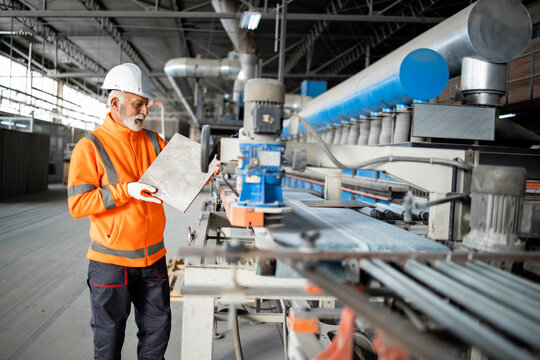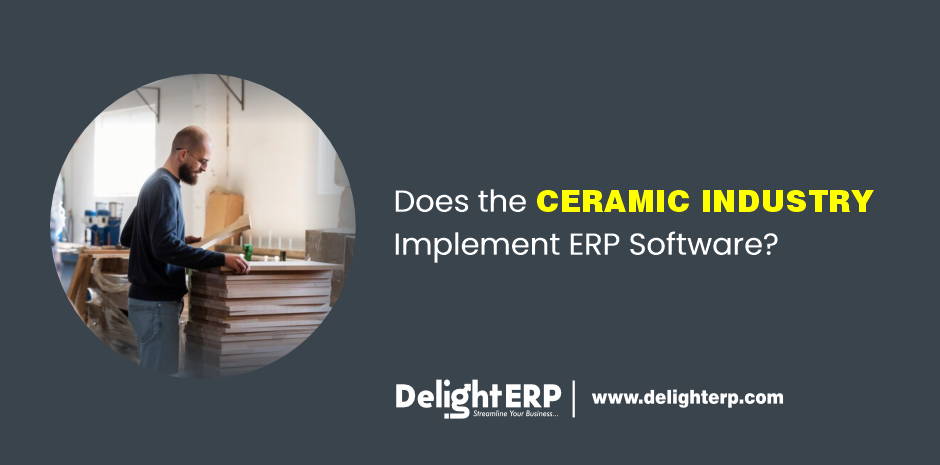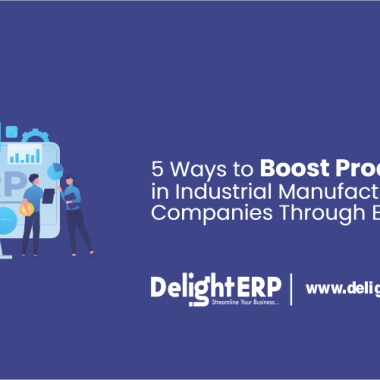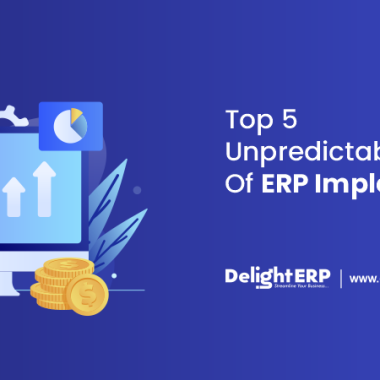Introduction
In the dynamic world of manufacturing, industries are constantly finding ways to optimize operations, enhance productivity, and stay competitive. The ceramic industry is known for its difficult production processes and quality standards. Last few years, there has been a growing trend towards the adoption of Enterprise Resource Planning (ERP) software across various sectors.
However, this introduction aims to delve into this inquiry, examining the potential benefits, challenges, and considerations associated with ERP Software implementation in the ceramic industry. As we navigate through this exploration, we will uncover how ERP software can be a strategic tool for driving growth, efficiency, and success in the ceramic manufacturing landscape.
How Does ERP Software Improve the Ceramics Industry?
ERP software enables the integration of various processes, from raw material management to production planning and scheduling, enhancing operational efficiency and reducing wastage in the ceramics industry.
Automating core processes and eliminating manual interventions, ERP software streamlines workflows and improves accuracy, increasing productivity and profitability for ceramics manufacturers.
ERP systems facilitate efficient resource planning and allocation, ensuring optimal utilization of materials, machinery, and labour, enhancing competitiveness in the ceramics industry.
Further, by enabling accurate demand forecasting and production scheduling, ERP solutions help ceramics companies meet customer demands promptly and maintain high service levels.
ERP software provides a centralized database for managing customer information, orders, and deliveries, improving customer satisfaction and loyalty in the ceramics sector.
Moreover, With integrated quality control modules, ERP solutions help ceramics manufacturers maintain consistent product quality, reduce defects, and enhance brand reputation.
ERP systems offer advanced reporting and analytics capabilities, enabling ceramics companies to gain insights into key performance indicators and make data-driven decisions.
Software facilitates seamless collaboration among different departments, such as procurement, production, and logistics, ensuring smooth operations in the ceramics industry.
ERP solutions help ceramics manufacturers maintain regulatory conformity and minimize risks by automating compliance processes and ensuring adherence to industry standards.

Benefits of implementing ERP Software in the ceramic industry:
-
Boost cash-flow
To boost cash flow for implementing ERP software in the ceramic industry, several strategies can be employed. Firstly, optimizing inventory management can reduce excess stock and free up capital. Additionally, offering payments from customers can speed up incoming cash. Streamlining production processes to minimize waste and improve efficiency can also contribute to cash flow improvement. Lastly, exploring financing options such as loans or leasing arrangements can provide the necessary funds while spreading the cost over time. By combining these approaches, the ceramic industry can enhance its cash flow position to successfully integrate an ERP software solution.
-
Cost saving
Implementing ERP (Enterprise Resource Planning) software in the ceramics industry can cost savings in various aspects of operations. The real-time visibility into inventory levels and material requirements enables better inventory management, minimizing stockouts and overstocking, leading to reduced carrying costs and wastage. Automated production planning and scheduling optimize resource utilization, ensuring optimal use of raw materials, machinery, and labor, thereby reducing associated costs. Additionally, ERP software provides accurate costing data and enables better cost control measures. Furthermore, the improved supply chain management facilitated by ERP Software leads to reduced lead times, optimized logistics, and better coordination with suppliers.
-
Better data & cloud security
In the ceramic industry can enhance data and cloud security, they are ensuring specific and accurate information. ERP Software centralizes data storage, allowing better control and user permissions. Moreover, ERP Software provides regular notifications regarding data security and app updates. But, cloud-based ERP Software can open with multiple layers of security, including backups and databases. However, real-time data audits enhance transparency and facilitating for the ceramic manufacturer.
-
Business process improvements
ERP software in the ceramic industry can optimize business processes by centralizing and managing operations. Through integrated modules for production planning, inventory management, sales, and finance, an ERP system enables real-time data visibility and enhances decision-making. It optimizes resource allocation, reduces lead times, minimizes inventory costs, and improves order fulfilment accuracy. Features like quality control and batch tracking ensure product consistency and compliance with industry standards. Additionally, the ERP software facilitates greater efficiency, agility, and competitiveness in ceramic manufacturing.
-
Improve inventory cost
ERP systems integrate inventory management processes across multiple locations, providing raw materials, work-in-progress, and finished goods stock levels. This visibility enables ceramics manufacturers to maintain optimal inventory quantities, minimizing the costs associated with excess stock, such as storage, insurance, and obsolescence. Additionally, ERP solutions facilitate better demand forecasting and production planning, aligning inventory levels with actual customer demand, and reducing the risk of stockouts or overstocking. Automated reordering processes and suppliers ensure timely replenishment of materials, reducing the need for excessive safety stocks. Furthermore, ERP software provides valuable insights into inventory turnover rates, slow-moving items, and material consumption patterns, allowing data-driven decisions to optimize inventory levels and minimize associated costs.
-
Better customer services
ERP Software provides real-time visibility into customer orders, production schedules, and delivery timelines. ERP systems integrate customer relationship management (CRM) modules, enabling ceramics manufacturers to maintain accurate and up-to-date customer information, order histories, and preferences. This centralized database facilitates efficient communication, order tracking, and responsive customer support. Furthermore, ERP software provides valuable insights into customer behaviour, preferences, and purchasing patterns, allowing ceramics companies to marketing strategies to better meet customer needs and enhance overall satisfaction.
Last words
Ceramic manufacturing has a digital transformation to improve efficiency, enhance decision-making, and stay competitive in today’s market. ERP Software offers modules for production planning, inventory management, sales, and finance, among others, providing real-time visibility into operations and enabling better resource allocation. By streamlining processes, reducing costs, and ensuring compliance with industry standards. Finally, ERP software has become a valuable asset for ceramic companies looking to optimize their operations and growth.
Delight ERP have an ERP Software that will help the Ceramic Industry. Also, that software can support the ceramic manufacturer. If you want more information about ERP Software you can get a FREE Demo for a deep understanding.



